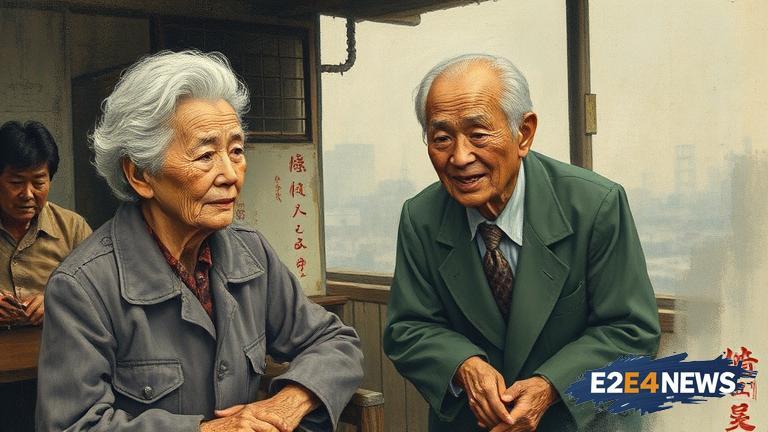Japan’s atomic bomb survivors, known as hibakusha, are a dwindling population, with many of them now in their 80s and 90s. The bombings of Hiroshima and Nagasaki in 1945 resulted in the deaths of an estimated 140,000 people, with many more suffering from the effects of radiation. The hibakusha have played a crucial role in raising awareness about the devastating consequences of nuclear war and promoting peace and disarmament. However, as their numbers decline, there are concerns that their stories and experiences will be lost forever. The Japanese government has been working to preserve the testimonies of the hibakusha, but more needs to be done to ensure that their legacy lives on. The hibakusha have faced numerous challenges, including discrimination, poverty, and poor health, but they have also shown remarkable resilience and determination. Many have dedicated their lives to promoting peace and nuclear disarmament, and their efforts have helped to raise awareness about the importance of preventing nuclear war. The bombings of Hiroshima and Nagasaki were a pivotal moment in history, marking the beginning of the nuclear age and highlighting the devastating consequences of nuclear war. The hibakusha have been at the forefront of efforts to prevent such a catastrophe from happening again, and their stories and experiences serve as a powerful reminder of the importance of peace and disarmament. Despite their advancing age, many hibakusha remain committed to their cause, and continue to share their stories and experiences with the world. However, as their numbers decline, it is becoming increasingly important to preserve their testimonies and ensure that their legacy lives on. The Japanese government has established a number of initiatives aimed at preserving the stories of the hibakusha, including the creation of a national archive and the development of educational programs. However, more needs to be done to ensure that the experiences of the hibakusha are not lost forever. The international community also has a role to play in preserving the legacy of the hibakusha, and in promoting peace and nuclear disarmament. The Treaty on the Prohibition of Nuclear Weapons, which was adopted by the United Nations in 2017, is an important step towards achieving a nuclear-free world, and the hibakusha have been instrumental in promoting its adoption. The hibakusha have also played a crucial role in promoting international cooperation and diplomacy, and their efforts have helped to raise awareness about the importance of preventing nuclear war. As the world continues to grapple with the challenges of nuclear proliferation and disarmament, the stories and experiences of the hibakusha serve as a powerful reminder of the importance of peace and cooperation. The hibakusha have shown remarkable courage and resilience in the face of adversity, and their legacy will continue to inspire future generations to work towards a more peaceful and nuclear-free world. However, it is imperative that their stories and experiences are preserved and passed on to future generations, so that the lessons of history are not forgotten. The preservation of the hibakusha’s legacy is not just a matter of historical record, but also a crucial step towards promoting peace and nuclear disarmament. As the world continues to navigate the complexities of international relations and nuclear diplomacy, the stories and experiences of the hibakusha will remain an essential reminder of the importance of cooperation and disarmament. In conclusion, the aging atomic bomb survivors of Japan are a dwindling population, but their legacy will continue to inspire future generations to work towards a more peaceful and nuclear-free world. It is imperative that their stories and experiences are preserved and passed on to future generations, so that the lessons of history are not forgotten.





